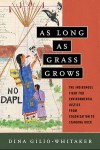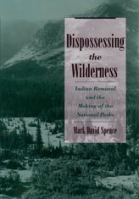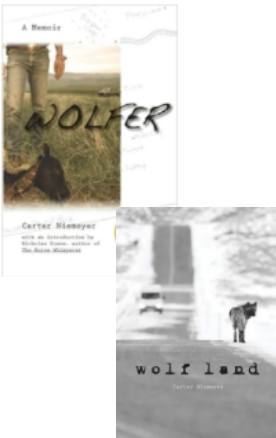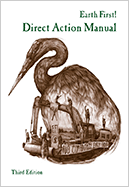Learn more about the issues behind wolf conservation, wildlife management, and environmental justice through these recommended books and scientific articles.
Books:

As Long as Grass Grows: The Indigenous Fight for Environmental Justice, from Colonization to Standing Rock by Dina Gilio-Whitaker
http://www.beacon.org/As-Long-as-Grass-Grows-P1445.aspx
An accessible history of Indigenous resistance to government and corporate incursions on their lands and new approaches to environmental justice activism and policy.

Dispossessing the Wilderness by Mark David Spence
This book examines the ideal of wilderness preservation in the US, focusing on policies of Indian removal at Yosemite, Yellowstone, and Glacier national parks from the early 1870s to the 1930s.

Wolves in the Land of Salmon by David Moskowitz
https://davidmoskowitz.net/wolves-in-the-land-of-salmon
Wolf ecology, history, and politics in the Pacific Northwest, with incredible photography

Wolfer and Wolf Land by Carter Niemeyer
https://www.carterniemeyer.com/
Memoirs of a former trapper and US Fish & Wildlife Service employee’s key work on wolf reintroduction in the 1990s and his journey from killer to champion of wolves.

Direct Action Manual by Earth First!
Available in our store, the DAM gives a thorough overview of direct action skills and techniques, such as planning, security culture, soft blocades, treesits, etc. compiled by frontline activists.

The Cougar Conundrum: Sharing the World with a Successful Predator by Mark Elbroch
https://islandpress.org/books/cougar-conundrum
The Cougar Conundrum delivers a clear-eyed assessment of a modern wildlife challenge, offering practical advice for wildlife managers, conservationists, hunters, and those in the wildland-urban interface who share their habitat with large predators.
Scientific Articles:
Settler Colonialism and “Wilderness”
“With rare exceptions, current biodiversity losses are caused not by human conversion or degradation of untouched ecosystems, but rather by the appropriation, colonization, and intensification of use in lands inhabited and used by prior societies. Global land use history confirms that empowering the environmental stewardship of Indigenous peoples and local communities will be critical to conserving biodiversity across the planet.”
- People have shaped most of terrestrial nature for at least 12,000 years. Erle C. Ellis, Nicolas Gauthier, Kees Klein Goldewijk . . . James E. M. Watson. Proceedings of the National Academy of Sciences, 2021. https://doi.org/10.1073/pnas.2023483118
- Wildlife conservation and settler colonialism in the North American West. Paul Berne Burow. Engagement: A blog published by the Anthropology and Environment Society, 2017.
Ecology and Trophic Cascades
- Modeling gray wolf (Canis lupus) habitat in the Pacific Northwest. T. Larsen and W.J. Ripple. Journal of Conservation Planning, 2006.
- Rethinking predators: Legend of the wolf. Emma Marris. Nature, 2014. https://doi.org/10.1038/507158a
- Reconciling conflicting perspectives for biodiversity conservation in the Anthropocene. C. Kueffer and C.N. Kaiser-Bunbury. Frontiers in Ecology and the Environment, 2014. https://doi.org/10.1890/120201
Predation Effects of Wolves on Cattle and Elk
- Cattle depredation risk by gray wolves on grazing allotments in Washington. Zoe Hanley, Hilary Cooley, Benjamin Maletzke, and Robert Wielgus. Global Ecology and Conservation, 2018. https://doi.org/10.1016/j.gecco.2018.e00453
- Effects of predation risk on elk (Cervus elaphus) landscape use in a wolf (Canis lupus) dominated system. Cristina Eisenberg, David E. Hibbs, and William J. Ripple.Canadian Journal of Zoology, 2014. https://doi.org/10.1139/cjz-2014-0138
- Forecasting cattle depredation risk by recolonizing gray wolves. Zoë L. Hanley, Hilary S. Cooley, Benjamin T. Maletzke, and Robert B. Wielgus. Wildlife Biology, 2018. https://doi.org/10.2981/wlb.00419
- Livestock management for coexistence with large carnivores, healthy land and productive ranches. Matt Barnes. People and Carnivores. 2015.
Human Hunting Impacts
- Poaching of protected wolves fluctuated seasonally and with non-wolf hunting. Francisco J. Santiago-Ávila and Adrian Treves. Nature Scientific Reports, 2022. https://www.nature.com/articles/s41598-022-05679-w
- Blood does not buy goodwill: allowing culling increases poaching of a large carnivore. Guillaume Chapron and Adrian Treves. Proceedings of the Royal Society B: Biological Sciences, 2016. https://doi.org/10.1098/rspb.2015.2939
- The unique ecology of human predators. Chris T. Darimont, Caroline H. Fox, Heather M. Bryan, and Thomas E. Reimchen. Science, 2015. https://doi.org/10.1126/science.aac4249
Endangered Species Act, Wildlife Management, and Policy Issues
- Bureaucratic mischief: Recognizing endangered species and subspecies. Stephen J. O’Brien, Ernst Mayr. Science, 1991. https://doi.org/10.1126/science.251.4998.1187
- Challenge the abuse of science in setting policy. Guillaume Chapron.
- Defining Recovery Goals and Strategies for Endangered Species: The Wolf as a Case Study. Carlos Carroll, Michael K. Phillips, Carlos A. Lopez-Gonzalez, and Nathan H. Schumaker. BioScience, 2006. https://doi.org/10.1641/0006-3568(2006)056[0025:DRGASF]2.0.CO;2
- Integrating Values and Ethics into Wildlife Policy and Management—Lessons from North America. Camilla H. Fox and Marc Bekoff. Animals, 2011. https://doi.org/10.3390/ani1010126
- Predator control should not be a shot in the dark. Adrian Treves, Miha Krofel, Jeannine McManus. Frontiers in Ecology and the Environment, 2016. https://doi.org/10.1002/fee.1312
- The Practices of Wolf Persecution, Protection, and Restoration in Canada and the United States. Marco Musiani, Paul C. Paquet. BioScience, 2004. https://doi.org/10.1641/0006-3568(2004)054[0050:TPOWPP]2.0.CO;2
- The public trust doctrine: Implications for wildlife management in the United States and Canada. G.R.Batcheller, M.C. Bambery, L. Bies, T. Decker, S. Dyke, David Guynn, M. McEnroe, M. O’Brien, John Organ, Shawn Riley, G. Roehm. A technical review by The Wildlife Society, 2010.
- Why the North American model of wildlife conservation is problematic for modern wildlife management. M. Nils Peterson & Michael Paul Nelson. Human Dimensions of Wildlife, 2017. https://doi.org/10.1080/10871209.2016.1234009
- Wolf delisting challenges demonstrate need for an improved framework for conserving intraspecific variation under the Endangered Species Act. Carlos Carroll, Daniel J Rohlf, Bridgett M vonHoldt, Adrian Treves, Sarah A Hendricks. BioScience, 2021. https://doi.org/10.1093/biosci/biaa125
 Speak for Wolves
Speak for Wolves
